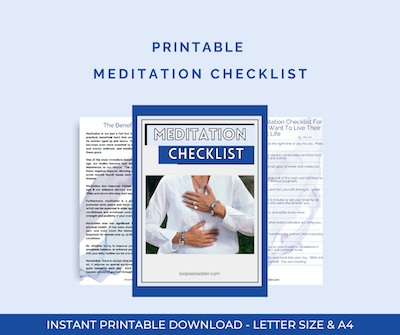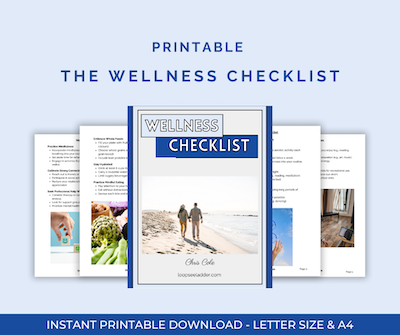The Mediterranean Diet and Women Over 55: Mindful Eating
The Mediterranean Diet is not just a way of eating; it’s a lifestyle that celebrates food, culture, and community.
Inspired by the culinary traditions of countries bordering the Mediterranean Sea, this diet emphasizes fresh, wholesome ingredients and the joy of sharing meals with loved ones.
Summary: This article addresses women aged 55+ and highlights how embracing a Mediterranean-style eating pattern can support health, vitality and ageing with intention. It explains that as the body changes—through menopause, shifts in metabolism, bone-density concerns and cardiovascular risk—this diet’s emphasis on vegetables, whole grains, legumes, fatty fish, nuts, and olive oil offers strong protection and nourishment. With evidence showing benefits such as lower blood pressure, improved cholesterol and potential cognitive support, the message is clear: you don’t have to follow restrictive diets, but you can use a wholesome, flexible pattern to support your next chapter.
A Preamble - The Mediterranean Diet and Women Over 55
Aging gracefully is about more than avoiding illness — it’s about living with energy, joy, and intention. The Mediterranean way of eating and women over 55 are a natural match, offering a lifestyle that supports heart health, brain function, and emotional balance. When paired with mindfulness, this approach to eating becomes even more powerful, transforming every meal into an opportunity for health and happiness.
The Mediterranean way of eating is not just a way of eating; it’s a lifestyle that celebrates food, culture, and community.
Inspired by the culinary traditions of countries bordering the Mediterranean Sea, this diet emphasizes fresh, wholesome ingredients and the joy of sharing meals with loved ones.
What is the Mediterranean Way of Eating?
The Mediterranean Diet emphasizes whole foods, healthy fats, and a variety of flavours. Key components include:
Fruits and Vegetables: A rich variety of seasonal produce.
Whole Grains: Foods like whole-grain bread, brown rice, and quinoa.
Healthy Fats: Extra-virgin olive oil, nuts, and seeds are the primary sources of healthy fats.
Lean Proteins: Fish, poultry, legumes, and limited amounts of red meat.
Dairy: Moderate consumption of yogurt and cheese.
Herbs and Spices: Flavorful herbs and spices replace excessive salt.
Health Benefits of the Mediterranean Way of Eating
1. Heart Health
Mediterranean foods are renowned for their heart-healthy benefits. The combination of healthy fats, fibre, and antioxidants helps lower cholesterol levels, reduce blood pressure, and decrease the risk of cardiovascular diseases.
2. Weight Management
The Mediterranean way of eating promotes a balanced approach to weight management by focusing on whole foods and mindful eating. The diet emphasizes satiety, making it easier to maintain a healthy weight without feeling deprived.
3. Improved Mental Well-Being
Research indicates that the Mediterranean eating plan may be linked to better mental health outcomes. The abundance of nutrients, particularly omega-3 fatty acids found in fish, supports brain health and may reduce the risk of cognitive decline.
4. Reduced Risk of Chronic Diseases
Following the Mediterranean eating plan has been associated with a lower risk of chronic diseases such as diabetes, hypertension, and certain types of cancer. The anti-inflammatory properties of the diet contribute to overall health and longevity.
The Mediterranean eating plan is renowned for its heart-healthy benefits. The combination of healthy fats, fibre, and antioxidants helps lower cholesterol levels, reduce blood pressure, and decrease the risk of cardiovascular diseases.
The Mediterranean way of eating promotes a balanced approach to weight management by emphasizing whole foods and promoting mindful eating. The diet emphasizes satiety, making it easier to maintain a healthy weight without feeling deprived.
The Social Connection Aspect of the Diet
One of the Mediterranean diet's most beautiful aspects is its strong emphasis on social connections. Meals are often shared with family and friends, fostering a sense of community and belonging.
Family Meals: In Mediterranean cultures, eating together is a cherished tradition. These gatherings create opportunities for bonding, conversation, and laughter.
Cultural Celebrations: Festivals and communal events often revolve around food, showcasing regional dishes and culinary traditions. These celebrations strengthen social ties and create lasting memories.
Mindful Eating: The Mediterranean eating plan encourages mindfulness during meals. Taking the time to enjoy the flavours and company enhances the overall dining experience.
One of the Mediterranean eating plan's most beautiful aspects is its strong emphasis on social connections.
Meals are often shared with family and friends, fostering a sense of community and belonging.
Weekly Meal Plan
Here’s a simple and delicious weekly meal plan that incorporates the principles of this diet. Feel free to mix and match based on your preferences!
Day 1
Breakfast: Greek yogurt topped with honey, walnuts, and fresh berries.
Lunch: Quinoa salad with cherry tomatoes, cucumber, parsley, and feta cheese.
Dinner: Grilled salmon with roasted vegetables drizzled with olive oil.
Day 2
Breakfast: Whole-grain toast with avocado and a sprinkle of feta cheese.
Lunch: Lentil soup with spinach and a slice of whole-grain bread.
Dinner: Chicken skewers marinated in lemon and herbs, served with a tabbouleh salad.
Day 3
Breakfast: Smoothie with spinach, banana, and almond milk.
Lunch: Hummus and vegetable wrap with a side of mixed greens.
Dinner: Shrimp sautéed with garlic and lemon, served over whole wheat pasta.
Day 4
Breakfast: Oatmeal topped with sliced almonds and fresh fruit.
Lunch: Chickpea salad with bell peppers, onion, and a lemon vinaigrette.
Dinner: Baked eggplant Parmesan with a side of arugula salad.
Day 5
Breakfast: Cottage cheese with sliced peaches and chia seeds.
Lunch: Mediterranean grain bowl with farro, roasted vegetables, and tahini dressing.
Dinner: Stuffed bell peppers with ground turkey, quinoa, and spices.
Day 6
Breakfast: Whole-grain pancakes topped with fresh strawberries and maple syrup.
Lunch: Tomato and cucumber salad with olives and feta cheese.
Dinner: Grilled lamb chops with rosemary, served with steamed green beans.
Day 7
Breakfast: Frittata with spinach, tomatoes, and goat cheese.
Lunch: Mediterranean pasta salad with olives, artichokes, and cherry tomatoes.
Dinner: Roasted chicken with garlic, lemon, and herbs, served with couscous
Conclusion: Embrace the Mediterranean Lifestyle
The Diet celebrates food, health, and connection. By adopting this lifestyle, you can enhance your overall well-being and foster meaningful relationships with family and friends. Start your journey today by incorporating these delicious meals and savouring the joy of shared dining experiences.
Call to Action
Are you ready to embrace the Mediterranean lifestyle? Start today.
Resources for YOU!
From Everyday Healthy - Carolyn Bernhart: A Complete Mediterranean Diet Food List and 14-Day Meal Plan
From Age Sister - Kate Milne, MSc, MHS, CSEP-CEP: The ultimate guide to the Mediterranean diet for women over 50
FAQ (Frequently Asked Questions)
Is the Mediterranean way of eating safe for women over 55?
In general, yes — it emphasizes whole foods, healthy fats, moderate protein, and limited processed foods, which aligns with many guidelines for healthy aging. However, individual health conditions (e.g., kidney disease, certain medications, allergies) should always be considered; therefore, consult your doctor or a dietitian.
Do I need to cut out meat entirely?
No. The diet promotes lean proteins, such as fish, poultry, and legumes, and suggests limiting red meat rather than eliminating it.
How much olive oil or nuts should I eat?
The article doesn’t specify exact grams or servings. Still, the intention is that these healthy fats are primary sources of fat in meals (in place of saturated fats), used in balance and moderation.
Will I lose weight on this diet?
Possibly — because the diet emphasizes satiety, nutrient-dense foods, and intentional eating, many people find they naturally regulate energy intake better. However, weight loss isn’t guaranteed without attention to portion sizes, regular physical activity, and a balanced total calorie intake.
How do I incorporate social aspects if I live alone?
You can adapt by inviting friends over for meals, participating in “meal swaps” with neighbours, joining local groups or community meals, or even hosting virtual or shared cooking sessions. The mindset is to make food an experience, not just a means of fuel.
Is the sample weekly plan rigid?
No — it’s illustrative. You’re encouraged to mix and match based on preferences, seasonal availability, budget, and dietary needs. The core follows the Mediterranean pattern, not rigid menus.
How soon can I expect to see health improvements?
That varies by person — some may notice improved digestion, more stable energy levels, or weight shifts within weeks, while others may observe cardiovascular or metabolic changes over several months. Because the diet is holistic, benefits tend to accrue gradually.
Can I combine this with other diets (e.g., low-carb or plant-based)?
To some extent, yes — but modifications should preserve the core principles (whole foods, healthy fats, lean protein). When combining with restrictive diets, it’s wise to do so under guidance to ensure adequate nutrition.
👉 I thoughtfully use AI tools to polish my writing, but every story comes from my lived experience.




































